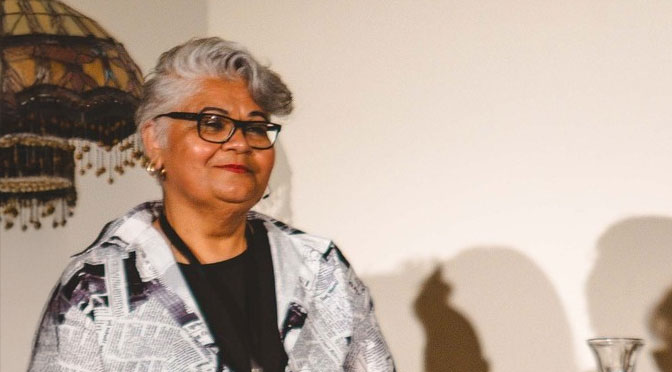Have you ever wondered why it’s so damn hard to write about sex without falling into pornographic clichés or sliding into prudish euphemisms? Australian author Krissy Kneen hasn’t just mastered this narrow path—she’s blazed an entirely new trail through the thicket of our sexual wilderness.
With books like “Affection,” “Triptych,” and “Adventures in the Sex Machine,” Kneen has found a literary language for the most intimate aspects of our bodily experience that is simultaneously explicit, poetic, and profound. And if you’re thinking, “Sounds interesting, but what can I take from this for my own writing?”—keep reading!
Radical Honesty as Revolutionary Act
What makes Krissy Kneen’s work so special is her unflinching honesty. In “Affection,” her autobiographical debut, she lays bare her own sexual development—from early childhood experiences to adult encounters.
But here comes the revolutionary part: she does this without shame, without apology, and with a linguistic precision that doesn’t back away from anything. In a world that still views female desire through the lens of male projections, this self-cartography is a radical act of liberation.
What can you learn from this attitude? Authenticity trumps expectations. When writing erotic literature, silence that inner voice whispering: “You can’t write that!” As Krissy Kneen herself puts it: “The act of writing about sex is an act of resistance.”
The Female Body: From Objectification to Protagonist
In traditional literature—whether erotic or not—the female body is often degraded to a passive object of male actions. Kneen’s genius lies in elevating the body itself to the protagonist.
In “Triptych,” her characters aren’t just defined THROUGH their bodies—they ARE their bodies, in all their complex, sometimes contradictory sensuality. The body isn’t decoration or backdrop for the “actual” story—it IS the story.
What does this mean for your own writing? Free yourself from the notion that physicality is separate from your characters’ personalities. Their bodily sensations, their sexual experiences aren’t additional information, but essential aspects of their being.
The Refusal of “Beautiful” Sex
One of the most fascinating elements in Kneen’s work is her refusal to idealize sex. Unlike in many erotic novels, sexual encounters in her work aren’t always aesthetically pleasing, smooth, or harmonious. They are sometimes awkward, messy, funny, or disturbing—just like in real life.
In “Adventures in the Sex Machine,” she explores the boundary between human and machine, between “natural” and technologically mediated desire. In doing so, she demystifies not only our ideas about sex but also our concepts of humanity itself.
The lesson for aspiring authors? Dare to show sex in all its chaotic, ambivalent truth. The most interesting erotic moments often emerge exactly where reality deviates from the ideal.
Language as a Sharp Tool
Perhaps most impressive is Kneen’s handling of language. She effortlessly switches between different registers—from poetic-lyrical to direct and colloquial. She doesn’t shy away from explicit terms but deploys them with surgical precision.
This linguistic elasticity allows her to capture different dimensions of sexual experience: the physical sensation, the emotional resonance, the social implications.
As a writer, you can learn from her: Experiment with different linguistic levels. The power of erotic literature lies not in being either only clinically explicit or only flowery-metaphorical, but in the conscious interplay of these registers.
Queer Visions: Beyond Heteronormative Narratives
Kneen’s work consistently transcends the boundaries of heteronormative sexuality. She explores lesbian, gay, bisexual, and other queer relationships with the same care and depth as heterosexual encounters.
In “Triptych,” she moves boldly through various sexual identities and practices, without exoticizing or judging. This inclusion isn’t contrived or intended as “variety”—it’s an organic part of her literary world.
What does this mean for you? Expand your erotic horizon. Even if you primarily describe heterosexual experiences, openness to various expressions of sexuality can deepen your understanding of desire and intimacy.
Bodies as Political Landscape
With Krissy Kneen, the body is never just personal—it’s always political, too. She shows how societal norms, family expectations, and cultural taboos shape our most intimate experiences.
In “Affection,” she connects her personal sexual history with broader questions about body norms, religious restrictions, and family dynamics. This contextualization gives her erotic prose a deeper resonance.
For your own writing, this means: Don’t forget the social context. Even the most intimate sexual encounters don’t happen in a vacuum but are permeated with social, political, and cultural meanings.
Vulnerability as Strength
Perhaps the most important lesson we can learn from Krissy Kneen is the courage to be vulnerable. She reveals not only the physical details of her sexual experiences but also the emotional landscapes that accompany them—the insecurities, longings, fears, and hopes.
This emotional exposure makes her erotic prose so powerful. It reminds us that sex is never just physical but always also a place of existential encounter—with oneself and with others.
As an aspiring author of erotic literature, this might be the most important insight: True erotic power lies in the willingness to be vulnerable. Not in perfection or spectacle, but in the ability to be touched.
Your Own Path Through the Sexual Wilderness
What Krissy Kneen ultimately shows us is not ONE right way to write about sex—rather, she shows us that we all must forge our own paths through the sexual wilderness. With courage, curiosity, and linguistic precision.
She liberates erotic writing from its commercial and pornographic constraints and elevates it to a form of self-exploration and cultural analysis.
In a world that still demonizes, fetishizes, or silences female and queer sexuality, this writing is nothing less than revolutionary.
What will YOU discover on your own literary journey? What truths are waiting to be voiced by you? Because in the end, that’s the true essence of erotic literature: not in the repetition of the familiar, but in the courageous exploration of the unknown—in yourself and in the world around you.

